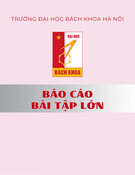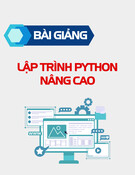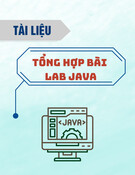
sockets TCP
UDP
Introduction
Sockets are a protocol independent method of creating a
connection between processes. Sockets can be either
◮connection based or connectionless: Is a connection
established before communication or does each packet
describe the destination?
◮packet based or streams based: Are there message boundaries
or is it one stream?
◮reliable or unreliable. Can messages be lost, duplicated,
reordered, or corrupted?
c
Mani Radhakrishnan and Jon Solworth Socket Programming in C/C++

sockets TCP
UDP
Socket characteristics
Socket are characterized by their domain, type and transport
protocol. Common domains are:
◮AF UNIX: address format is UNIX pathname
◮AF INET: address format is host and port number
Common types are:
virtual circuit: received in order transmitted and reliably
datagram: arbitrary order, unreliable
c
Mani Radhakrishnan and Jon Solworth Socket Programming in C/C++

sockets TCP
UDP
Socket characteristics (cont’d)
Each socket type has one or more protocols. Ex:
◮TCP/IP (virtual circuits)
◮UDP (datagram)
Use of sockets:
◮Connection–based sockets communicate client-server: the
server waits for a connection from the client
◮Connectionless sockets are peer-to-peer: each process is
symmetric.
c
Mani Radhakrishnan and Jon Solworth Socket Programming in C/C++





![Bài giảng Lập trình C cơ bản: Tuần 13 [Mới nhất]](https://cdn.tailieu.vn/images/document/thumbnail/2024/20240503/codabach1016/135x160/1511714732838.jpg)


![Bài giảng Lập trình C cơ bản: Tuần 10 [Mới Nhất]](https://cdn.tailieu.vn/images/document/thumbnail/2024/20240503/codabach1016/135x160/9751714732844.jpg)

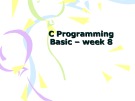




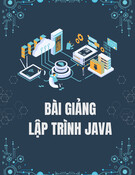
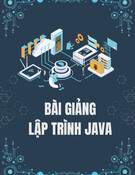
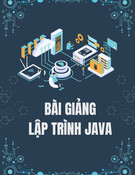
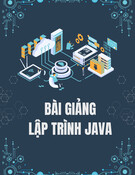
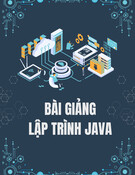
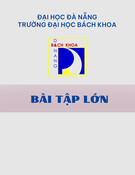
![Hệ thống quản lý cửa hàng bán thức ăn nhanh: Bài tập lớn [chuẩn nhất]](https://cdn.tailieu.vn/images/document/thumbnail/2025/20251112/nguyenhuan6724@gmail.com/135x160/54361762936114.jpg)
![Bộ câu hỏi trắc nghiệm Nhập môn Công nghệ phần mềm [mới nhất]](https://cdn.tailieu.vn/images/document/thumbnail/2025/20251111/nguyenhoangkhang07207@gmail.com/135x160/20831762916734.jpg)


